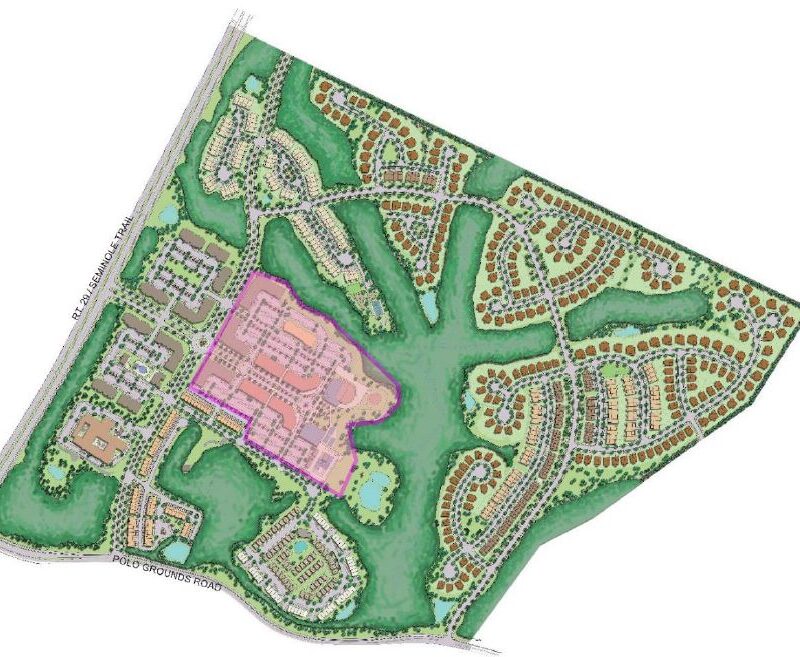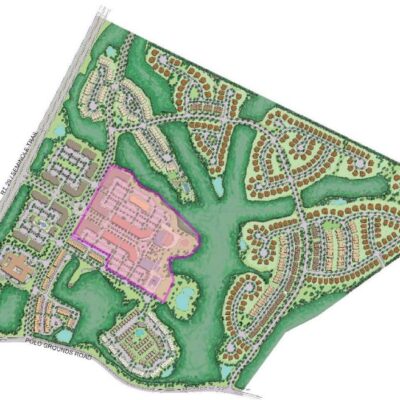Last year, Charlottesville was one of more than 100 cities to apply for a piece of a $4 million federal Choice Neighborhood grant. The Charlottesville Redevelopment and Housing Authority (CRHA) hoped to use a $250,000 slice to review plans for Levy Avenue, the first phase of its master plan to redevelop public housing. Last month, the Department of Housing and Urban Development (HUD) split the Choice Neighborhood grants among 19 recipients—Baltimore, Memphis, Philadelphia and…well, not Charlottesville.
|
As part of the city’s public housing redevelopment master plan, this Levy Avenue site was expected to host anywhere from 36 to 80 units. However, recent discussions have sent initial designs back to the drawing board. |
“The comprehensive and holistic nature of the grant aligned nicely with the goals and objectives of our local redevelopment effort,” says Amy Kilroy, CRHA Director of Redevelopment, via e-mail. Now, she says “we are evaluating whether or not we can still implement parts of our application’s scope of work using other funding sources.”
The City of Charlottesville and CRHA, which manages sites for the city, agreed to collaborate on public housing redevelopment earlier this year. According to the master plan designed by Wallace, Roberts & Todd, redevelopment could increase Charlottesville’s total housing units to as many as 720 at a reported cost of up to $150 million. The number of public housing units would remain at 376, while new units would include market rate and affordable rentals.
The first redevelopment phase focuses on Levy Avenue—the planned site of anywhere from 36 to 80 units, located near the federally subsidized Friendship Court complex. Levy Avenue would house families displaced by the redevelopment process while subsequent sites are redeveloped. Kilroy tells C-VILLE, however, that since the adoption of the redevelopment master plan, discussions among board members and residents have essentially invalidated designs proposed for the site.
Phase Four of the master plan calls for the multi-year redevelopment of Crescent Hall, a 105-unit housing project built in 1976. However, during a recent CRHA Board meeting, executive director Randy Bickers referred to Crescent Hall as part of Phase 1, because “we see the urgency” to renovate the site. (During the same meeting, public housing residents voiced concerns about elevators at Crescent Hall, and board member Joy Johnson referred to the site as “a senior building.”)
While the loss of the Choice Neighborhood grant doesn’t seem likely to halt redevelopment, it does slow the response to those urgent needs. Recently, the CRHA Board of Directors also approved a $6.4 million budget for the upcoming fiscal year. The budget is $400,000 greater than the current budget, but CRHA still faces a $73,000-plus deficit due to increased expenses.
“Receiving the Choice Neighborhoods grant would have allowed the City and Housing Authority to immediately begin moving forward with implementing the work plan as listed in the grant application,” says Kilroy. “Now that it looks like we won’t be receiving those funds, we will figure out another way to get the work done.”
/IMG_3225.jpg)





